Godfathers - Interview Part 2
by John Clarkson
published: 30 / 6 / 2013
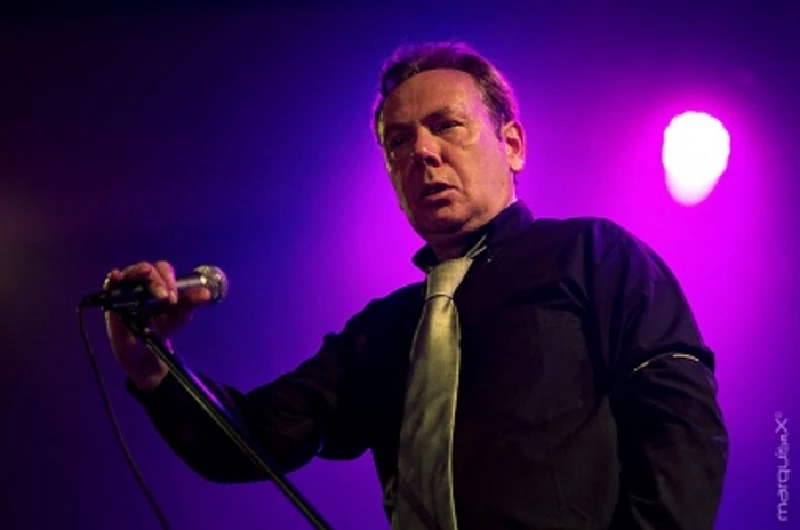
intro
..and in the second part about 'Jukebox Fury', their first album in seventeen years
PB: Who came up with the title ‘Jukebox Fury’? PETER COYNE: I did. Everybody went away and came up with a list of titles. I had a list of twelve album titles, and Del had a similar lengthy list, and Chris had a few titles as well. It was basically a choice out of all the titles that we had swimming around out there, and Chris liked 'Jukebox Fury', Del liked it, I liked it and Dave liked it, so that was what it became. It is meant to imply that something explosive is happening, something ferocious pertaining to music. It is a pun on that 60’s show ‘Jukebox Jury’, but it very quickly turned into its own thing because as soon as we did arrive at the album title, we gave it over to Jaime Martin, who does all our artwork and sleeve designs for us. As soon as he got that title he started working away on the sleeve and the back cover, and I think that he has done a really amazing job. The cover of ‘Jukebox Fury’ looks like a jukebox from hell. I am really pleased with it as the whole album has that sort of feel about it. CHRIS COYNE: Our friend Jaime in Spain did the sleeve. It reminds me of one of those great 50's and 60's compilations, 'Forty Rock and Roll Greats' or something like that. It may not have been a particularly original idea but it looks great. PB: It is a very well sequenced album. It flows together very well, and comes across as an album with a real beginning, middle and an end. Did you spend a lot of time working on the track listing and what was going to go where? PETER COYNE: Yes, we did. There was a lot of debate about it, and which would be the first track to start it off and which would be this and which would be that. I came up with most of the running order and then Chris and Del opted for ‘Let Your Hair Come Down’ as the opener, but pretty much the sequence was there in place as it was and it just needed a little bit of tweaking and plucking. DEL BARTLE: I remember there were about twenty arguments and nervous breakdowns about what was going to go where (Laughs), but I think that things have worked out ultimately pretty well in that respect. People tend to just pick tracks these days and put them into their iTunes library, but I don't think there is any filler on this album. I don't think people listen to albums as albums nearly as much as they did, but I hope they will with this one. CHRIS COYNE: The first and last songs caused us a lot of debate. That is another thing now. You put up something online and people say, "I will have that tune and I will have this one." The whole album, unless you have got 'Tubular Bells' or something and some continual 45 minute piece of music, doesn't really work in either CD or demo format these days. 'Jukebox Fury' is old-fashioned in that sense. PETER COYNE: Every album is a story, isn’t it? Every album is an adventure. Every album is supposed to take you somewhere else for forty minutes or fifty minutes or however long it lasts. We never wanted to replicate what we had done in the past. We weren’t interested in that whatsoever. We didn’t want to do ‘Hit by Hit Part 2’ or ‘Birth School Work Death: The Follow-Up’ or ‘More Songs about Love and Hate: The Sequel’. We wanted to do a new album that we were all happy with. That is why everybody is writing on this album. That way everybody had maximum input and involvement. Everybody can be satisfied or dissatisfied with their contribution. It is entirely up to them. CHRIS COYNE: I saw the Godfathers as the Beatles rather than the Rolling Stones, and having three singers or four singers rather than just one just one singer. That to me always made the Beatles more interesting than the Stones. Look at all those great George Harrison songs that were buried for years. It wasn’t until he went solo that all those really great songs came out because he had been argued off a record or it just wasn’t good enough or whatever. Who is to say why? The politics in a group sucks most of the time. DEL BARTLE: With ‘Let Your Hair Hang Down’ I put together the music and came up with the basic idea for that, and then Chris came up the lyrics and melody and also did the vocals. PB: ‘Back into the Future’ was the first song that you wrote together as a group after Del joined the band. You have described the Godfathers in the past as not being a political band. Do you see that as being a political number? PETER COYNE: We can be quite political people, but we are not a political band. Some members of the group are more political than others. I am quite a political person. I would say that Del is, but I wouldn’t necessarily say that Chris or Dave are. We are all different in the group. Why should we all be the same? We have all got different brains and different outlooks on life. ‘Back into the Future’ is looking at everything that is going on around nowadays and holding up a mirror to it. DEL BARTLE: I think the lyrics on ‘Back into the Future’ show Peter at his strongest really. I don’t really see us as a political band, but then again life is about politics and politics is about life. It is hard to avoid it, isn’t it? It is hard not to notice the effect of the times when people are topping themselves because they can’t pay their bedroom tax or whatever. We are not an overtly political band, but you write songs about what you see and what you are affected by. CHRIS COYNE: I have never looked at us as a political band. I just wanted to be in a good old song and dance band, but if people want to see politics in our songs that’s fine. I am not really that obsessed with politics. I know you can’t avoid it and you have got to speak up about certain things because otherwise we are fucked, but I hate all the dogma that goes with politics. I don’t vote. I don’t align myself with any political party. I think that one is as guilty as the other one really. What we have had in the last twenty years in this country has been shit. PETER COYNE: ‘Back into the Future’ is about what the government and businesses want you to do these days. They want you to work for nothing. They want you to just consume and obey. That is what they want these days. It has got so much worse. We were operating amongst the Thatcher era when we originally started out, and they were the worst kind of gangsters that you have got going. The crowd you have got nowadays is, however, unbelievable and if anything even worse. One of the most distressing phrases which has entered the modern language – and no one thinks about is – is human resources. That is such a dalek term. What is wrong with personal department? You’re just a human resource to these people, and once you are no good to these people they don’t care about you. They don’t want you anymore. They don’t even want to look after you. They don’t give a shit about how you try and live or pay your bills. They literally don’t care. They couldn’t care and they couldn’t be moiré blatant about it if they tried. ‘Back into the Future’ was about that, but it was also about looking at us as a group as well. It was about the Godfathers getting back into the future, so it has got this double-edged thing going on. Of course it is about society today but it is about the Godfathers too. PB: What inspired ‘The Outsider’? Was it written about anyone in particular? PETER COYNE: I wrote that song quite a few years ago. Some of the songs that ended up on ‘Jukebox Fury’ were written over the last year or two, and some of them were written many years before that. ‘The Outsider’ is a case in point for the latter. I probably wrote the lyrics to that about ten years ago. I am always writing. I get an idea in my head. I can’t stop unless I have it down on paper. I can hear the tune or the idea for a song in my head, and as soon as I am writing a lyric I have got a melody line. I read the book by Albert Camus years ago. I loved the opening sentence, “Mother died today”, but it has got nothing to do with the book. It is about the feeling of being outside of everything, of being outside of society and the mainstream. DEL BARTLE: ‘The Outsider’ was one of two numbers on the album which I used a baritone guitar on. ‘Theme to the End of the World’ is the other one. I picked up the baritone a couple of years ago. With that one, I brought the baritone guitar home from the shop, plugged it in and the same night came up with the basic tune in about twenty minutes. Obviously it took a bit longer to develop into the song, and to add Peter’s melody and vocals to it. I love that song. It has that old time rock and roll thing about it, but it still has a nice, current feel to it as well. Peter’s vocals again are at their best on that one. They really work well in that harsh, aggressive kind of tune. PETER COYNE: I am an outsider. The Godfathers are outsiders. Any genuine rock and roll band are outsiders. We are not part of the machine. I have never felt part of it. ‘The Outsider’ is about that as well. PB: There has always been a sly dark humour running through the Godfathers’ music, and ‘Primitive Man’ really brings that humour to the fore. Do you see the message of that song as saying that rather than that society has dumbed down a lot recently that in fact it has always been dumbed down? PC: Yes. Just because someone has got an iPod wrapped around their ears doesn’t mean that they are better than somebody from 5,000 years ago. They are just another ape, but in a T-shirt and a pair of jeans. There has not been that much movement really, has there? People still want the basic elements of life like water, food and sex. There is something primitive in each and every one of us. I got the ideas for ‘Primitive Man’ by watching this documentary about a Neanderthal man with Professor Alice Roberts, and it just struck me that there is not really that much difference, is there? You might live in a house instead of a cave. You might have electric lighting instead of a fire, but we have not really evolved that much, have we? We have not really been that long here either. It also struck me that you see quite a few primitive men walking along Lambeth Road in South London or Buchanan Street in Glasgow. You can see the knuckles dragging along the ground, can’t you? There is this dark humour to the Godfathers. ‘Primitive Man’ is a serious song, but it is also a laugh as is ‘Birth School Work Death’. That is another piece of black comedy, as is ‘Love is Dead’. It is a great piece of Godfathers tradition I think to take something seriously but also to have a really black sense of humour about it. Music is meant to be fun. If you listen to ‘God Save the Queen’ and ‘Anarchy in the UK’ by the Pistols, of course they are serious numbers, but they are also fun. They were always meant to be fun. John Lydon did not want to go around wilfully depressing people. He wanted to wake them up and alert them, but he wanted them to enjoy themselves as well. Music has many facets to it. It should be like the BBC and inform, educate and entertain. PB: Del, your one solo composition on the album is ‘A Can of Worms’. You also sing the main vocal on that one. What is that song about? DEL BARTLE: It was about one of life’s mistakes, the sort of thing that we all make (Laughs). And it was one which I got away with just about, so I should be grateful and I got a song out of it as well. PB: ‘Theme to the End of the World’ is possibly the most remarkable song on the album. It is completely unlike anything that you have done before, and reveals another completely different side to the Godfathers. A lot of people have described it as your Ennio Morricone number. Do you see it as being that? PETER COYNE: Musically it definitely comes from that. Del came up with that tune, and instantly as soon as I heard it I had the words for it in my head. I think it is quite a tender song. The idea of that song is that I am telling someone I love that “this is the last day on Earth and we have got to be honest here and make the most of it.” DEL BARTLE: I had just bought the baritone guitar, and was tinkering around with it and remembered that in Spaghetti Western music the baritone guitar is often very prominent. That was the inspiration behind that one. CHRIS COYNE: it has a bit of everything, doesn’t it? It has got that Sergio Leone soundtrack type thing going on, and it is just trying to get a mood. Del had a tune and I put two bass lines on it, one which went way one way and one which went the other. Peter had a lyric for it, and I have been doing paltry Spanish sessions lately and so that is where the whispered bit in Spanish comes in, just to try and create some sort of atmosphere. There was another piece of music that I wanted to add on to the end of it, but we ran out of time and money. I wanted to do it kind of like a triptych, and have these three atmospheric numbers flow into each other. PETER COYNE: It is a beautiful, lovely number. It has got an intimacy to it. The lyric and the vocal on that track I did in one take, which is quite unusual for me. We kept it like that. I didn’t want to record it again or try another take on it. Chris added the Spanish lyrics to it as a whisper which added another dimension to it. I was really pleased with the whole way that track finished up and its whole feel. PB: Chris and Del co-wrote ‘The Man in the Middle’ together. Who is ‘The Man in the Middle’ directed at? CHRIS COYNE: Well, have a guess. We’ll leave that to the reader. I thought it was quite easy really, but never mind. I am not trying to be Bob Dylan or anything, but I hate trying to explain lyrics. If you haven’t got a good tune, then the tune doesn’t mean shit to me really. I am more for a melody. PB: It could be construed as being a political song and about sitting on the fence. DEL BARTLE: Both Chris and I worked on the music and the lyrics together. I had the original idea for it and the chorus was mine, but some of the lyrics are his. There is probably a bit of a point towards me in there. It is not so much about sitting on the fence, but being shot at by both sides (Laughs). PB: And lastly there is ‘Thai Nights’. What inspired that? Chris, that one was yours. Have you spent a lot of time in Thailand? CHRIS COYNE: I actually wrote that on my honeymoon, and that was twenty odd years ago. DEL BARTLE: Chris had had that song for many years, and as I said it was the very first thing that we started to record. We had actually started working on another version of it, but it was Peter who convinced us to stick with the original version. PB: You are going to re-release ‘The Godfathers’ album later this year. Is that because it is its twentieth anniversary? PETER COYNE: In a way but it is also because the rights have reversed back to us from the German label Intercord that released it originally. It will coming out on Godfather Recordings. That album is the fifth studio album that the Godfathers made, and was released after we had separated from Epic Records/Sony. It is a really strong album, and there are some brilliant songs on it. PB: Will there be extra tracks? PETER COYNE: Yes, a couple of tracks that we recorded at the time but we didn’t release at the time. There might be some live tracks as well from the same period. It is due to come out in October at some point. That album is like a lost Godfathers album. Some Godfathers fans know about it, but a lot don’t and those that do will be getting it again with bells and whistles on. That album hasn’t been released in about in years and years and you can’t get a hold of it without paying £40 or £50. We have got to put a stop to that, and for that reason alone it is worth re-releasing it. PB: Peter, the last time we did an interview with you were working on a novel, ‘Black Cat Nine Lives’. Are you still hoping to get that published? PETER COYNE: Yeah, one day. The group has taken over now so I put all my energies and efforts into that. I would like to write books, but I don’t have the time these days. It took me four years to write that book and that was on and off, on and off. To me that was a like a journey to the top of the mountain, but I did actually get there. Again I was really happy with that. I would like to get it published one day. I might self-publish it myself. I might put it out as an e-novel. I would also like to write my story, my autobiography. I have got a great title for it as well - ‘Birth School Work Death’. PB: And finally you are going to be doing a headline tour of Europe and Britain between October and December. What are your plans and do you hope for after that? Will there be another album? PETER COYNE: I can’t say when it is going to be, but we are always working towards the next Godfathers record, always, always. I am always thinking about it. My brother Chris is always thinking about it, and I know that Del is thinking about it as well, but we have got to take a pause sometimes. We have just released a new album, which I am really proud of. We have just done a load of dates, twelve concerts in Spain, twenty-three dates with the Stranglers, five dates in Spain, a festival in Belgium, three dates in Croatia, a concert in Serbia and two in Germany. This thing never stops, but I like that. We are busy people, and we like to be kept busy as the devil makes work for idle hands. CHRIS COYNE: I know that ‘Jukebox Fury’ got great reviews, but I want the next one to sound sonically different. Overall I like it, but personally speaking I don’t think that some songs measure up sonically as well as other songs on the record. We self-produced most of 'Jukebox Fury', but I would love to find another producer like Vic Maile who produced our first three albums. He was perfect. He was great at arranging vocals and harmonies. That was the biggest loss to this group, never mind guitarists or drummers leaving. It was Vic Maile passing away. It was a great loss. You can do a lot these days with a great engineer, as long as you have got your ideas in place before you go into the studio. You save a fuck a lot of time and you enjoy it more, but it is not the same as having a producer. I am keeping an open mind about getting a producer. If there is somebody out there, I would love to hear from them. DEL BARTLE: I am enjoying it and looking forward to the next album. I don’t enjoy the nervous breakdowns and the rows particularly. No, I am joking really. We were chatting to Bas Warne, the Stranglers front man, at the sound check to one of the Stranglers shows, and he said, “What better thing is there to be doing?” and then he added, “And at our time of life as well.” And he is right. We are quite lucky really to have these opportunities. There are lots of good bands out there and it is very difficult if you haven’t got any kind of name to get anywhere with your music, no matter how good it is. It is a shame, but it is the harsh reality of the music business at the moment. Unless you’re a twenty something, it is very difficult to get music out there and get it noticed. It is something to be appreciated. DAVE TWIGG: If any band wants to continue to work, they have got to avoid being labelled as a nostalgia act. You can’t just live off your back catalogue. Peter and Chris and also Del are very aware of that. The intention is to keep writing and recording, and perhaps at some over the next year we will get a new album out. Once you fall into that trap you’re stuck with it, aren’t you? They know they have got to remain active and keep moving ahead as best as they can. There have been all these line-up changes, and they have a different sound because they have only got the one guitarist now instead of the two they used to have. It is not the band that it was back then. It is a different band, but their desire to write and record is no less now than it was back then. It is something that I think they will always want to do. PB: Thank you.
Band Links:-
http://www.godfathers.uk.com/https://www.facebook.com/TheGodfathersFamily
Have a Listen:-
Picture Gallery:-
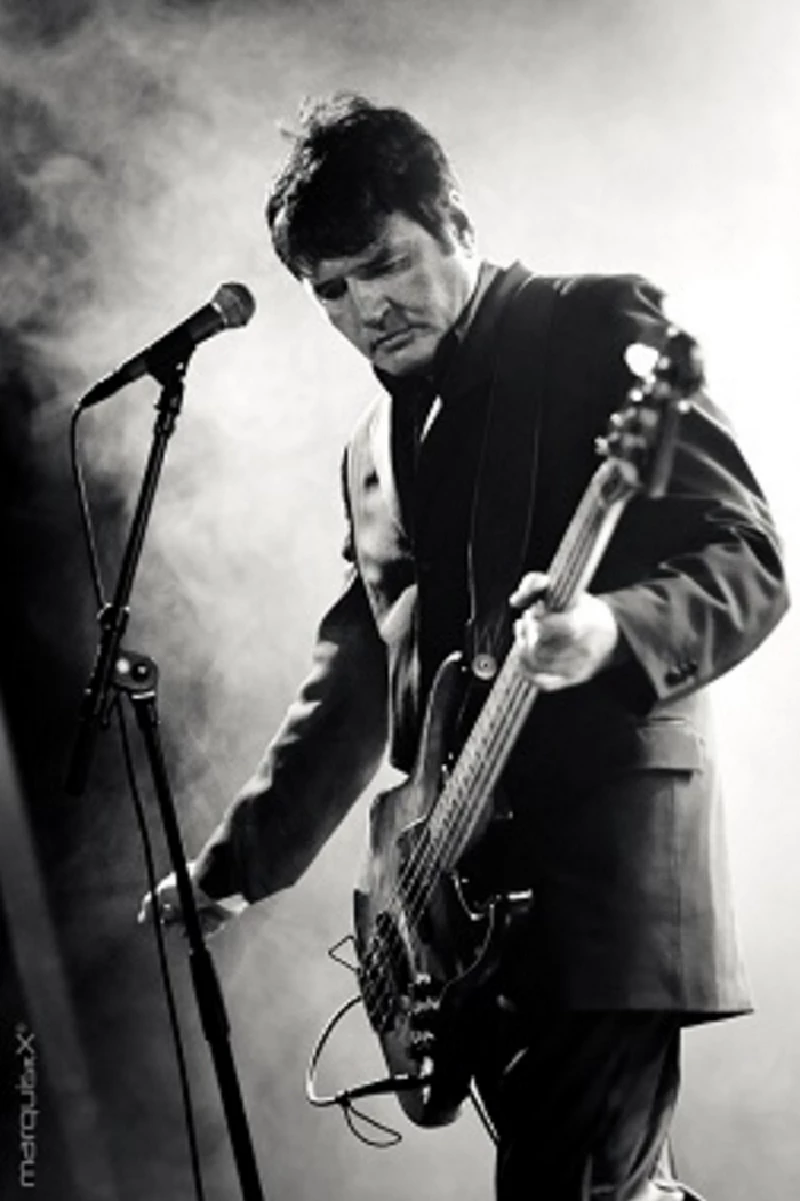
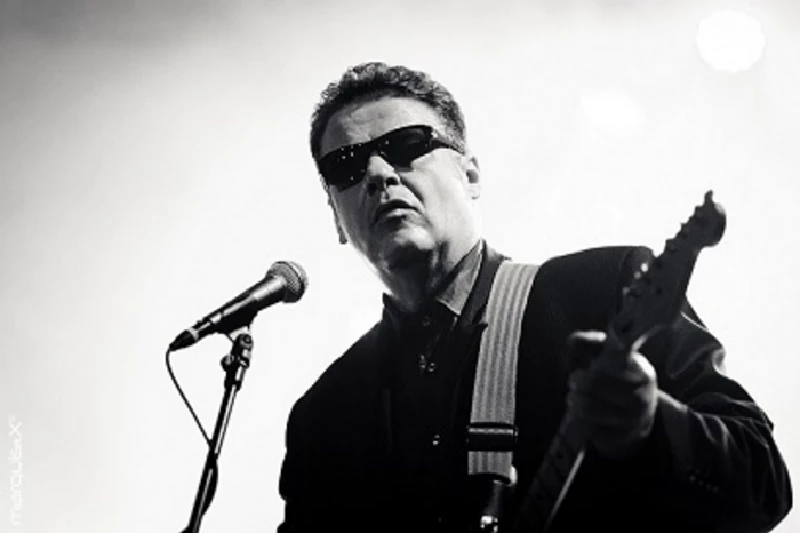
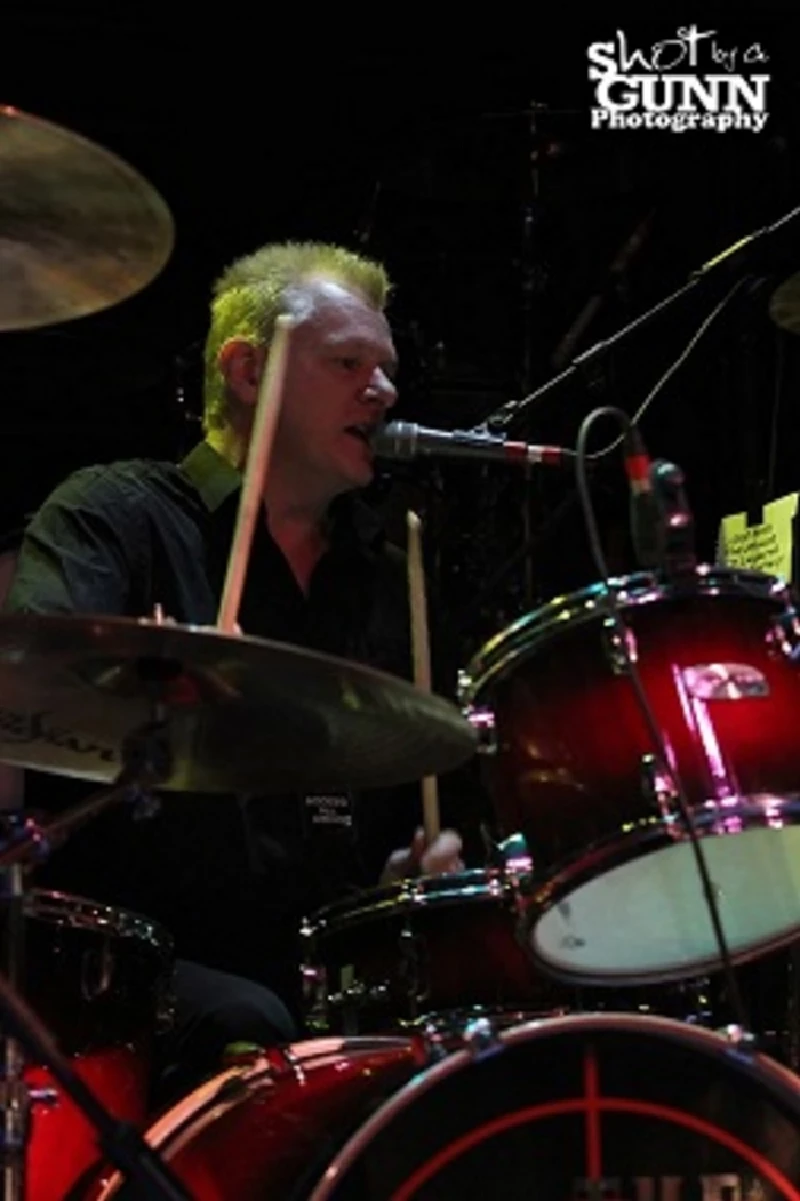
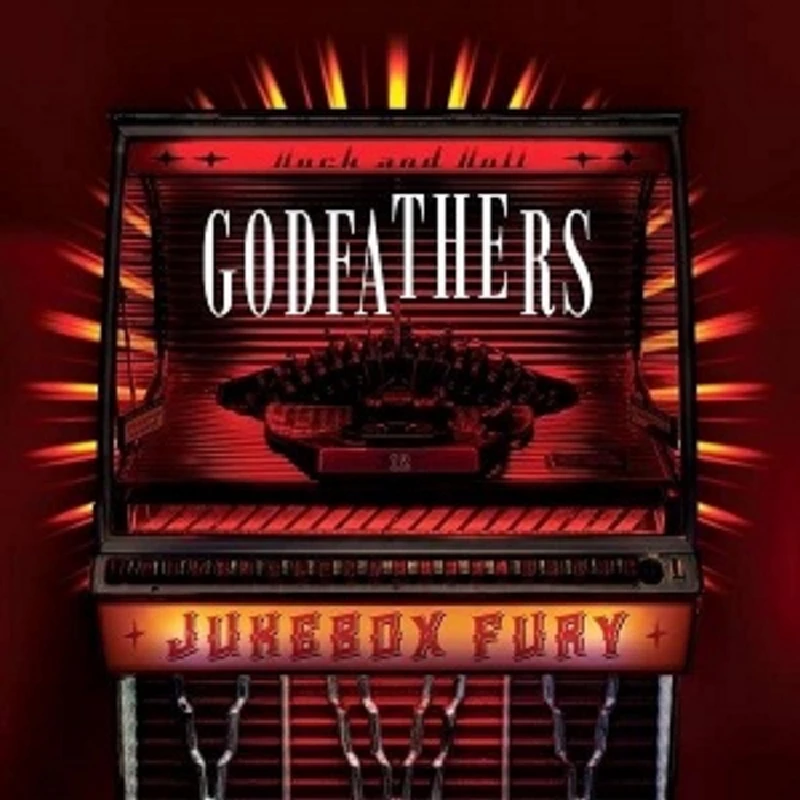
interviews |
|
Interview with Peter Coyne (2022) |
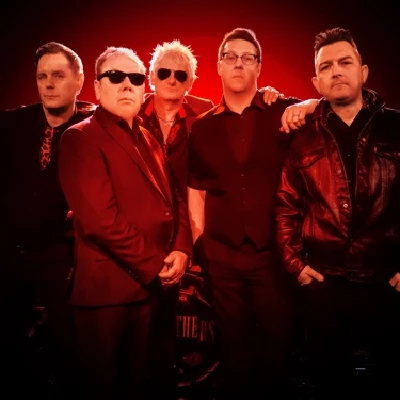
|
| Peter Coyne, the frontman with The Godfathers, speaks to Denzil Watson about their critically acclaimed new album, ‘Alpha, Beta, Gamma, Delta’. |
| Interview (2020) |
| Interview (2017) |
| Interview Part 1 (2013) |
| Interview (2008) |
profiles |
|
Godfathers (2011) |
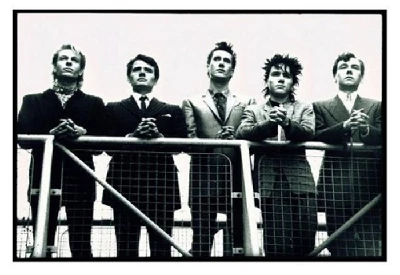
|
| Andrew Carver reflects upon South London punk/rock 'n' roll band the Godfathers first two major label releases, 1988's 'Birth, School, Work, Death' and 1989's 'More Songs about Love and Hate', which have both recently been reissued |
live reviews |
|
Lexington, London, 31/10/2014 |
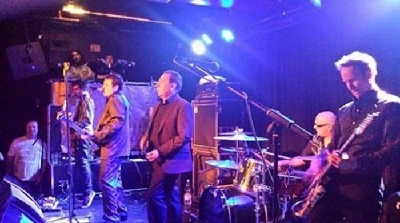
|
| Dastardly watches London-based rock and roll/punk legends the Godfathers unveil their new five-piece line-up in typically blistering form at the Lexington in London |
| Picture House, Edinburgh, 1/3/2013 |
favourite album |
|
The Godfathers (2013) |
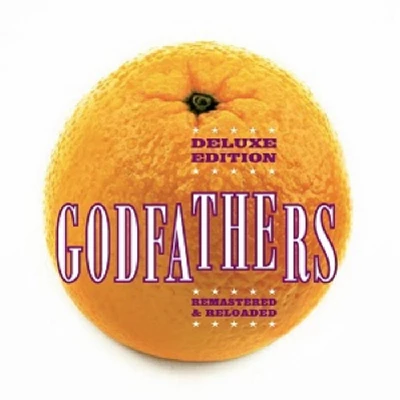
|
| John Clarkson examines South London-formed alternative rock band the Godfathers' eponymous and rarely heard 1993 album, which is about to be re-released for its twentieth anniversary in a double CD edition |
features |
|
Songs about Love and Hate : An Intro (2002) |
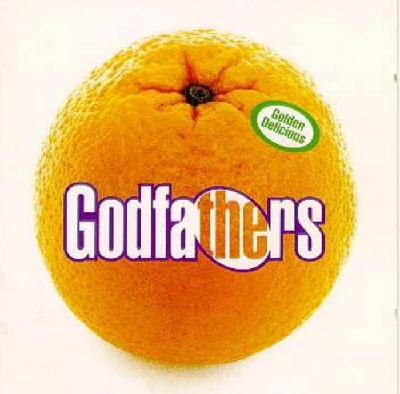
|
| 1990 was spent mainly touring, and working on songs for the next album, and 1991 began optimistically with the group playing their largest ever St Valentine’s Day Massacre at London’s Brixton Academ |
| Songs about Love and Hate : An Intro (2002) |
| Songs about Love and Hate : An Intro (2002) |
soundcloud
reviews |
|
Alpha Beta Gamma Delta (2022) |
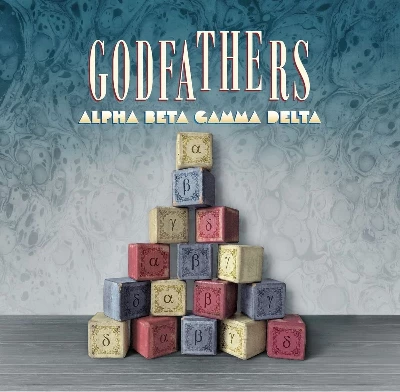
|
| Inventive and richly versatile ninth album from The Godfathers which proves to be a career highlight |
| I'm Not Your Slave/Wild and Free (2020) |
| A Big Bad Beautiful Noise (2017) |
| Jukebox Fury (2013) |
| Shot Live at the 100 Club (2010) |
most viewed articles
current edition
Shrag - Huw Stephens Session 08.12.10 and Marc Riley Session 21.03.12Gary Numan - Berserker
Razorlight - Photoscapes
Max Bianco and the BlueHearts - Troubadour, London, 29/3/2025
John Hassall - Photoscapes
Primal Scream - Photoscapes
Roberta Flack - 1937 - 2025
Waeve - Club Academy, Manchester, 18/3/2025
previous editions
Heavenly - P.U.N.K. Girl EPManic Street Preachers - (Gig of a Lifetime) Millennium Stadium, Cardiff, December 1999
Boomtown Rats - Ten Songs That Made Me Love....
Beautiful South - Ten Songs That Made Me Love...
Barrie Barlow - Interview
Oasis - Oasis, Earl's Court, London, 1995
Trudie Myerscough-Harris - Interview
Dwina Gibb - Interview
Pixies - Ten Songs That Made Me Love...
Doris Brendel - Interview
most viewed reviews
Pennyblackmusic Regular Contributors
Adrian Janes
Amanda J. Window
Andrew Twambley
Anthony Dhanendran
Benjamin Howarth
Cila Warncke
Daniel Cressey
Darren Aston
Dastardly
Dave Goodwin
Denzil Watson
Dominic B. Simpson
Eoghan Lyng
Fiona Hutchings
Harry Sherriff
Helen Tipping
Jamie Rowland
John Clarkson
Julie Cruickshank
Kimberly Bright
Lisa Torem
Maarten Schiethart